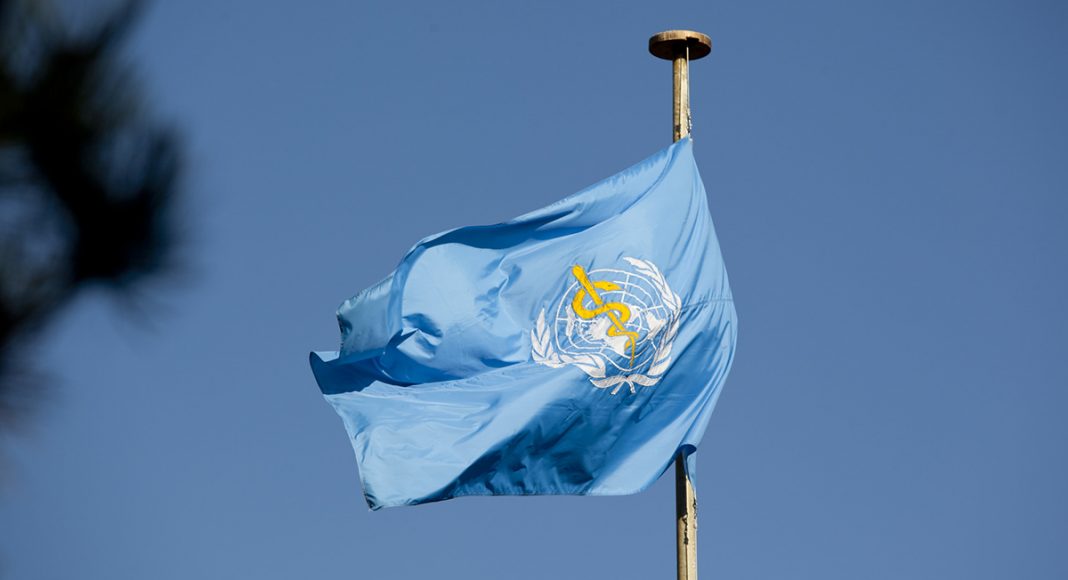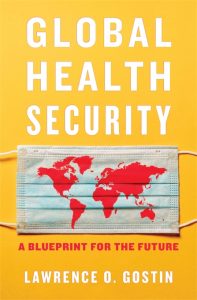In an excerpt from his new book, Global Health Security: A Blueprint for the Future, Lawrence O. Gostin examines the challenges and threats to global health security.
With new institutions entering the global governance for health arena, there is a risk that World Health Organization’s (WHO) authority will be undermined and its power usurped. Funders could take their money elsewhere. Institutions focused on immunizations or other areas could establish policies that conflict with rather than reinforce WHO norms, or set their own priorities. For example, they might promote the safety of therapies that WHO has not yet recommended, or their research priorities might differ with those of WHO. A fragmented governance system, with a multitude of powers taking the lead on divergent missions, presents challenges that could ultimately threaten global health and make the world less safe.
In contrast to WHO’s direct, comprehensive health mission, other governance sources are often charged with alternative priorities, like economics or trade, with health only at the periphery. In other cases, primarily with public-private partnerships, organizations are directly concerned with global health, but hold a more narrow agenda, focusing on just a few diseases, or even a single disease. And to maintain donors’ interests, organizations may seek the type of action that will produce quick results, without addressing longer-term health security needs. In a system that promotes operating under a narrow and short-term agenda, root causes that demand system-wide change—such as poverty and access to basic necessities like clean water—could be neglected. Because a large part of funding for global health is donation-based, it has been primarily a zero-sum game. Outside of innovative financing mechanisms, directing money toward one objective often means taking funds away from another. So how do organizations make funding decisions?
Unlike WHO’s one-country-one-vote policy, not all stakeholders hold an equal voice in public-private partnerships. Despite having governance structures that incorporate civil society, formal participation does not mean equal voice, and marginalized populations could remain marginalized even when nominally included. More generous donors—both public donors, like the United States, and private donors, like the Gates Foundation—generally have a larger say in how their monies are spent. They may have motivations or priorities apart from the public good, such as geostrategic interests or seeking to enhance their reputation. Donors may be more interested in funding “hot topics” that are highly visible and garner media attention. Meanwhile, other conditions like neglected tropical diseases, which affect over a billion largely impoverished people each year, receive research funding equivalent to less than 10 percent of funds directed to malaria, tuberculosis, and HIV/AIDS. By ignoring a wide subset of the global disease burden during nonemergency times, organizations that supposedly are primarily geared toward health solutions in lower-income countries could lose communities’ trust.
On top of challenges from rising global health powers outside WHO, the US notice of withdrawal from and suspension of funding to WHO during Covid-19 demonstrates how fragile the agency, and its capacity to respond to a pandemic, truly are. Responding to WHO’s shortcomings by pulling funding and political support can only weaken the agency at a time when defeating the virus required global strength and unity.
A Path toward Sound Governance
It is imperative that we fix our fragmented system of global governance for health. Global coordination is key, and WHO remains uniquely important for global health security. Its legitimacy stems from the participation and at least nominally equal voice of all governments, and from the agency’s normative powers, scientific authority, scope, and global reach. It is essential that WHO remain a leader in global governance for health. The Covid-19 pandemic has brought heightened attention to the role of WHO in maintaining health security, and offers an unprecedented opportunity to reform the agency to give it the funding and authority necessary to protect the world from major health threats.
WHO must reestablish its legitimacy as the guardian of global health through reform and embodiment of the principles of good governance. In part this requires structural changes in WHO itself to address the underlying reasons its authority began to erode in the first place. As an integral part of its reform, WHO must open avenues to harness the capabilities of the various global health organizations described above through strategic partnerships, while leading coordinated efforts to meet global health priorities.
“The Covid-19 pandemic has brought heightened attention to the role of WHO in maintaining health security, and offers an unprecedented opportunity to reform the agency to give it the funding and authority necessary to protect the world from major health threats.”
Building a more robust World Health Organization. Currently WHO’s meager annual budget is perhaps its most limiting factor in fulfilling its role as a leader in global health. WHO’s budget has remained largely static over the years despite the agency taking on a greater scope of responsibility and more complex challenges, like novel and emerging infectious diseases, antimicrobial resistance, noncommunicable diseases, and climate change. With its funding already stretched thin, WHO is forced to rely on unpredictable donations to achieve the objectives set out in its constitution, such as helping governments strengthen their health systems and providing technical assistance and aid during emergencies. Member states must become genuine shareholders in WHO by raising contributions to cover a needs-based budget. In 2018 WHO estimated it needed $14.1 billion from 2019 through 2023. Mandatory dues should constitute at least 50 percent of WHO’s budget—a historic benchmark. As discussed in the Introduction, a “peace” or “security” dividend to ramp up global preparedness and prevention would produce dividends for public health, avoiding incalculable human suffering and economic loss caused by failures in pandemic preparedness. Further, WHO headquarters should exercise more oversight over regional personnel and decision making. WHO should fully disclose the funds held by each regional office and how regions meet health objectives, with monitoring and benchmarks of success. If decentralized decision making remains the norm, WHO should apply the same yardstick across regions to assess efficiency.
Gaining public trust through transparent decision making. WHO must be a global model for transparent decision making in global governance for health. The Covid-19 pandemic demonstrated how WHO can get caught in the crossfires of countries’ geopolitical disputes, as the United States accused WHO of promoting China’s interests ahead of global health in its Covid-19 response. Such accusations hurt WHO, especially when they lead states parties to pull voluntary funding and support, or even exit WHO entirely. The 2018–2020 DRC Ebola epidemic further demonstrated that deep-rooted governmental mistrust, which extends to international humanitarian organizations, can result in the rejection of lifesaving treatment, prevention, and information during emergencies. Transparency in the processes of governance, including decisions on initiatives to fund, leaders to elect or appoint, or strategies to implement, would help counter these sentiments. While maintaining good working relationships with national governments, WHO must be viewed as an independent resource with an unquestionable objective of promoting health and human rights. And WHO must go one step further to promote the same type of transparency among other key actors, whether public or private, in global governance for health. This includes working to ensure that developing countries are not overshadowed by higher-income nations and entities, but also have a strong voice in decisions that will impact the health of their people.
Harnessing global expertise through collaboration. WHO must identify and open avenues for more inclusive participation by civil society and other global health partners. Otherwise WHO could be left behind as rising institutions carve out new and divergent governance paths. With WHO as a centralized leader, agencies and partnerships should explore new ways to innovate and collaborate to strengthen global health security, such as by collaborating with the IMF and World Bank to use the IMF’s macroeconomic stability evaluations and the World Bank’s PEF to incentivize meeting IHR obligations. Collaboration, instead of competition, should be encouraged under a comprehensive perspective of global health promotion.
While WHO remains at the core of global health, its mission hinges critically on willingness, accountability, and coordinated action by other institutions. Navigating narrow political agendas and power dynamics is no easy task. But WHO must prove its capacity to lead cohesive international efforts on building health systems, creating and enforcing norms, and, when defenses fail, rapidly mobilizing an international response. Only then, through sound governance, will a healthier and more secure world be achieved.
Lawrence O. Gostin has spent three decades designing resilient health systems and governance that take account of our interconnected world, as a close advisor to the Centers for Disease Control and Prevention, the World Health Organization, and many public health agencies globally.
Excerpted from Global Health Security: A Blueprint for the Future by Lawrence O. Gostin, published by Harvard University Press. Copyright © 2021 by the President and Fellows of Harvard College. Used by permission. All rights reserved.
Learn more about our disclosure policy here.







